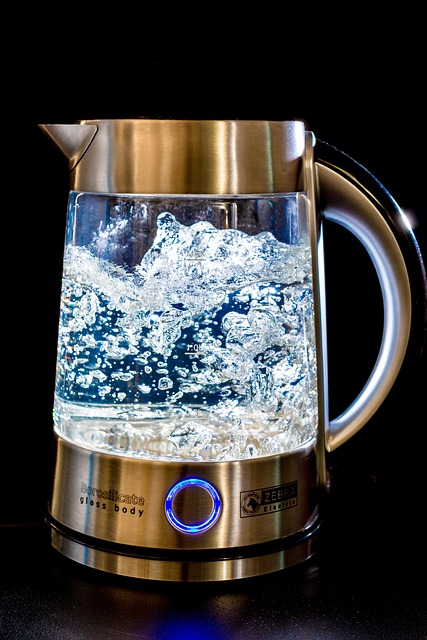Regular water heater maintenance is essential for preventing costly repairs, ensuring safe and efficient heating, and prolonging the heater's lifespan. Key tasks include checking for leaks, replacing worn parts like O-rings and pressure relief valves, periodically flushing the system, and staying vigilant for unusual smells or noises. Establishing a routine check every 3 to 6 months, focusing on corrosion, leak detection, secure connections, and sediment buildup cleaning, optimizes energy efficiency and saves money on utility bills.
Water heaters are often overlooked until they malfunction, leading to costly repairs. Understanding common issues and implementing routine maintenance can prevent these surprises and extend your water heater’s lifespan. This article guides you through essential tasks, from identifying potential problems to streamlining care, ensuring optimal performance and savings. By following these tips on water heater maintenance, you’ll avoid expensive interventions and keep your hot water flowing smoothly.
- Understanding Water Heater Malfunctions and Their Costs
- Routine Maintenance Tasks for Optimal Performance
- Tips to Streamline Care and Extend Appliance Lifespan
Understanding Water Heater Malfunctions and Their Costs

Water heater malfunctions can lead to costly repairs, so understanding potential issues and their causes is the first step in preventing expensive surprises. Common problems include temperature control malfunctions, pressure relief valve failures, and leaks stemming from corroded or worn-out components. These issues not only result in inefficient heating but also pose safety hazards due to potential scalding or water damage.
Regular water heater maintenance can significantly reduce these risks. By scheduling routine check-ups, you can ensure optimal performance and longevity of your unit. During these visits, professionals inspect for corrosion, leaks, and other signs of wear and tear, replacing worn parts before they fail. This proactive approach not only saves money in the long run but also safeguards your home from potential damage caused by water heater malfunctions.
Routine Maintenance Tasks for Optimal Performance

Regular maintenance is key to ensuring your water heater functions at its best and preventing costly repairs. Here are some essential tasks to include in your routine care regimen. First, check for any leaks around the base and connections of your heater. Even small drips can lead to significant waste over time and potential damage to surrounding areas. Regularly inspect and replace worn-out or damaged parts, such as O-rings and pressure relief valves, to avoid malfunctions.
In addition, flushing the system periodically helps remove mineral buildup and sediment, which can reduce efficiency and cause heating issues. Most water heaters recommend annual or bi-annual flushes, depending on usage and local water conditions. Keep an eye out for odd smells or noises coming from your heater, as these could indicate problems like corrosion or bacterial growth. Addressing these issues early can save you from more severe and expensive repairs down the line.
Tips to Streamline Care and Extend Appliance Lifespan

Regular care can significantly extend your water heater’s lifespan and prevent costly repairs. Start by setting a schedule for routine maintenance, ideally every 3 to 6 months. During each check-up, inspect the tank for any signs of corrosion or leaks. Ensure all connections are tight and secure, as loose fittings can lead to significant damage over time. Cleaning the sediment build-up at the bottom of the tank is crucial; this residue can insulate hot water, reducing efficiency and potentially causing excessive strain on the heater.
Additionally, check the temperature settings and adjust them as needed to avoid unnecessary energy consumption. Remember, proper water heater maintenance not only saves you from unexpected breakdowns but also helps in conserving energy, thereby reducing utility bills.
Regular water heater maintenance is a surefire way to prevent costly repairs and prolong your appliance’s lifespan. By understanding common malfunctions, performing routine tasks like flushing and checking for leaks, and adopting efficient care practices, you can keep your water heater running smoothly. Investing time in these simple steps will save you money and ensure a reliable hot water supply for years to come, making it an essential practice for every homeowner.
